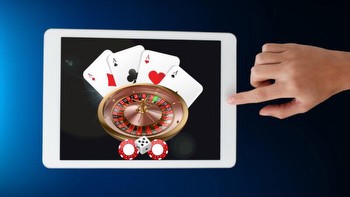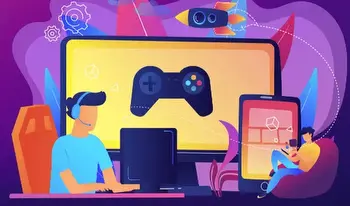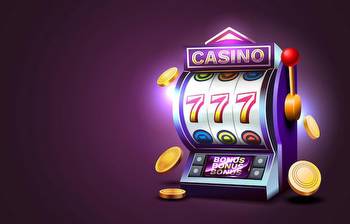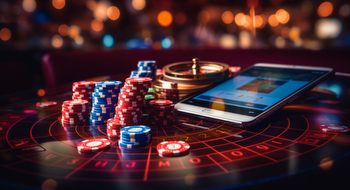Tech's Winning Hand: The Evolution Of Blackjack Through Online Platforms
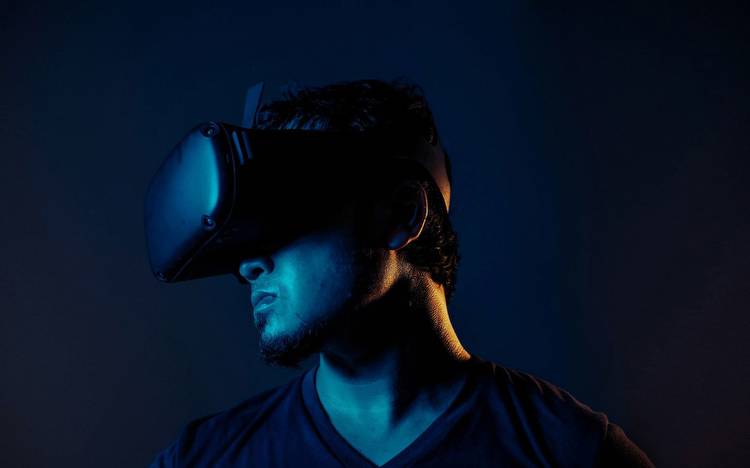
Blackjack, a game synonymous with the glitz and glamor of casinos, has a rich history that dates back to the 17th century. Originating from a Spanish game called “Ventiuna,” it has since evolved, captivated minds, and found its place in the hearts of gamblers worldwide. The thrill of strategizing, taking risks, and beating the dealer in a high-stakes showdown has made Blackjack an enduring classic. But as we moved into the digital era, technology started reshaping every facet of our lives, and the gambling industry was no exception. The advent of online platforms revolutionized the way we play Blackjack, bringing about a paradigm shift in strategies, accessibility, and gaming experience. In this article, we will delve into the fascinating journey of how technology transformed Blackjack from the casino table to the digital screen, exploring the impact it has had on players, strategies, and the future of this beloved card game.
The Traditional Game of Blackjack
Blackjack, also known as twenty-one, is an intoxicating mix of skill, strategy, and luck. The game’s simplicity belies its depth – at its core, Blackjack pits players against the dealer in a quest to draw cards that sum up closest to 21, without going over. Each card holds a specific point value, with face cards worth 10 and aces flexible, counted as either 1 or 11. The beauty of Blackjack lies in this delicate balance between risk and reward, where each decision can tip the scales in your favor or send you spiraling into defeat.
The popularity of Blackjack is universal, transcending geographical boundaries and cultural divides. From the bustling casinos of Las Vegas to the exclusive gaming clubs of Monaco, you’ll find eager players huddled around the Blackjack table, their faces a study in concentration as they plot their next move. The game has woven itself into the tapestry of global culture, featuring prominently in movies, literature, and popular lore. It’s not just a game; it’s a social phenomenon that brings people together, offering them a shared experience punctuated by high-stakes drama and camaraderie.
Stepping into a physical casino, the Blackjack table often stands out, a beacon drawing players like moths to a flame. The atmosphere is electric – the soft murmur of conversation, the rustle of cards, the clink of chips, all underscored by the palpable tension that hangs heavy in the air. As you take your seat at the table, you can feel the anticipation building, a thrilling cocktail of excitement and apprehension. Every card dealt, every bet placed, sends a surge of adrenaline coursing through your veins. And when you finally hit that elusive 21, the rush of triumph is unparalleled, a moment of pure exhilaration that makes all the uncertainty worthwhile.
The Advent of Online Casinos
The dawn of online casinos can be traced back to the mid-1990s, a time when the Internet was rapidly evolving and expanding into new domains. The first notable milestone in this journey was in 1994, when a company named Microgaming was launched, laying the groundwork for the online gambling industry. In 1996, InterCasino set another landmark by becoming the first operational online casino, marking the beginning of a new era in gambling
Early online casinos were relatively simple, offering a limited selection of games. Blackjack, with its straightforward rules and widespread popularity, was one of the first card games to make the digital transition. These early online blackjack games played a significant role in setting the stage for the future of online casino gaming, providing a blueprint for game design, user interfaces, and online betting systems.
However, the advent of online casinos was not without its controversies and challenges. The explosion of online gambling raised numerous legal and regulatory issues. Concerns around fair play, fraud, and money laundering came to the forefront. There were questions about the integrity of games, the security of online transactions, and the potential for exploitation of vulnerable players. These challenges prompted a wave of regulation, including licensing requirements for online casinos and the implementation of measures to ensure game fairness and player protection. For instance, the use of Random Number Generators became a standard practice to guarantee fair play.
Despite these challenges, the online casino industry continued to grow and evolve, driven by technological advancements and changing consumer habits. Today, the industry is valued at over $57 billion, a testament to its resilience and adaptability. The early days of online casinos, marked by innovation, controversy, and regulatory challenges, have had a lasting impact, shaping the landscape of online gambling as we know it today.
Technological Innovations in Online Blackjack
The world of online Blackjack has undergone a significant transformation thanks to the rapid advancements in technology. Initially, online Blackjack games were rudimentary with basic graphics. However, with the evolution of gaming technology, these games now boast high-definition graphics and immersive game interfaces that closely emulate the experience of playing at a physical casino. The vibrant visuals, coupled with realistic sound effects, bring the thrill of Blackjack right onto your screen, creating an engaging and immersive gaming experience.
Moreover, the advent of mobile technology has been a game-changer for online Blackjack. Mobile apps have made the game more accessible than ever before, allowing players to enjoy a round of Blackjack anytime, anywhere. This convenience has significantly broadened the player base, making Blackjack not just a casino classic, but a popular choice for mobile gaming as well.
One of the most significant innovations in online Blackjack has been the introduction of live dealer games. These games use real-time video streaming to connect players with real dealers, who deal physical cards from a casino studio. This format combines the convenience of online play with the social interaction and authenticity of a physical casino, revolutionizing the online Blackjack experience.
Lastly, fairness and transparency in online Blackjack are ensured by cutting-edge technology known as Random Number Generators (RNGs). These algorithms generate random sequences of numbers, ensuring that every card dealt is entirely independent of the previous one, mimicking the randomness of shuffling and dealing in a physical game. This technology has been critical in establishing trust in online Blackjack, reinforcing its popularity among players worldwide.
In essence, technology has redefined the landscape of online Blackjack, enhancing the gameplay experience while ensuring accessibility, authenticity, and fairness.
Impact of Technology on Blackjack Strategy
The advent of technology has brought about a profound transformation in the way Blackjack is played and strategized, creating a dynamic interplay between players and casinos. On the one hand, technological advancements have provided players with sophisticated tools to refine their strategies and reduce the house edge. On the other hand, these same technologies have equipped casinos with advanced mechanisms to protect their profitability.
Software programs, mobile apps, and computer algorithms have revolutionized the players’ approach to Blackjack. These technological tools provide enthusiasts with a wealth of information on strategy, card counting, and probability at their fingertips. For instance, the software can simulate millions of Blackjack hands within seconds, providing players with valuable insights into different strategies and their potential outcomes. Moreover, card counting, once an art mastered only by the most dedicated players, can now be assisted by software that tracks cards and calculates the odds in real-time.
Meanwhile, casinos have adapted to these technological developments to ensure their advantage. They’ve implemented measures like automatic shuffling machines to combat card counting and maintain the unpredictability of the game. Some online casinos also use sophisticated software to detect betting patterns indicative of card counting, enabling them to take preemptive action.
The intersection of technology and Blackjack has thus created an intriguing battle of wits between players and casinos. Each side leverages technology to gain an edge, leading to a constant game of cat and mouse as new strategies are developed and countermeasures are deployed.
Looking ahead, the future of Blackjack promises to be even more technologically driven. With advancements in artificial intelligence and virtual reality, both players and casinos will have more sophisticated tools at their disposal. This ongoing evolution ensures that the game of Blackjack remains as exciting and competitive as ever, continually reshaped by the relentless march of technology.
The Future of Blackjack and Online Gambling
The future of Blackjack and online gambling is on a trajectory of exciting, tech-driven innovation. Emerging technologies like Virtual Reality (VR) and blockchain are set to redefine the gaming experience, pushing the boundaries of what’s possible in a digital casino environment. VR, for instance, has the potential to create hyper-realistic, immersive gaming environments that blur the line between the physical and virtual worlds. This could transform games like Blackjack, enabling players to virtually ‘sit’ at a table and interact with other players and dealers as if in a real casino.
Blockchain technology, on the other hand, could greatly enhance transparency and security in online gambling. By recording each transaction on a decentralized, immutable ledger, blockchain could help eliminate fraud and ensure fair play, enhancing trust in the online gambling space.
The future could also see the rise of AI dealers in online Blackjack. These advanced algorithms could mimic human dealers’ behaviors, adding a new level of realism and interactivity to the game. They could also adapt to individual players’ styles, providing a more personalized gaming experience.
However, these advancements also raise important legal and ethical questions. As online casinos become more immersive and realistic, issues around player safety, privacy, and regulation will likely come into sharper focus. Governments and regulatory bodies will need to keep pace with these technological changes, implementing new measures to protect players and ensure the integrity of online gambling.
In conclusion, the future of Blackjack and online gambling promises to be an exciting fusion of cutting-edge technology and traditional casino gaming. While challenges lie ahead, these advancements have the potential to enrich the gaming experience for players and drive significant growth in the online gambling industry.










